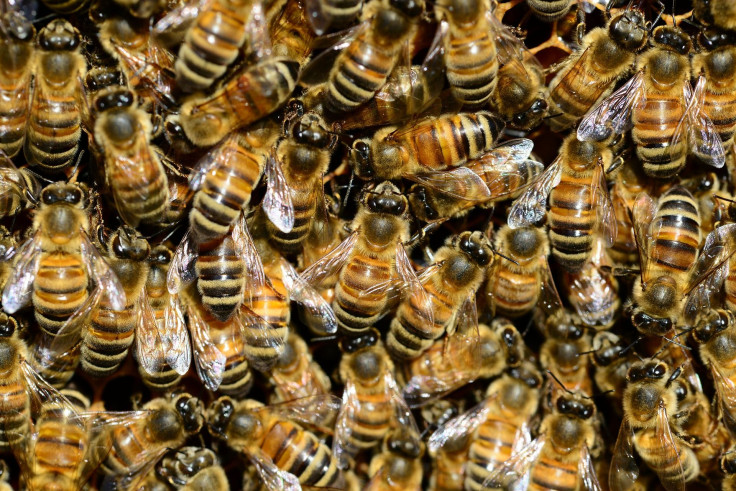Vulture Bees: These Meat-Eating Bees Have Acidic Gut Microbiomes, Study Finds
KEY POINTS
- Researchers looked at "vulture" bees' gut microbiome
- Their microbiomes were rich in "acid-loving bacteria"
- The bacteria possibly protect the bees from pathogens in the carrion: researchers
There's a type of bee that has a taste for meat, unlike the nectar-feeding insects that we know. A team of scientists has now found that the bees' gut microbiome is actually like that of vultures.
Most bees feed on nectar and pollen. As the researchers of a new study describe them, they are "wasps that switched to a vegetarian lifestyle." However, there are specialized stingless bee species that also collect carrion, or the flesh of dead animals. Also called "vulture" bees, they have "reverted from their vegetarian origins and now rely on carrion as their primary source of dietary protein."
"These are the only bees in the world that have evolved to use food sources not produced by plants, which is a pretty remarkable change in dietary habits," one of the study's authors, Doug Yanega of the University of California Riverside (UCR), noted in a news release.
The team had a closer look at vulture bees' gut microbiome. Diets can "drastically influence" the host's gut microbiome, the researchers explained.
The researchers went to Costa Rica, where the bees are found. They used pieces of raw chicken as baits, which successfully attracted vulture bees, as well as other species that feed on meat for protein.
Interestingly, the researchers observed that the vulture bees also used their "baskets," which other bees use to store pollen on their hind legs, to store the meat. Study co-author, entomologist Quinn McFrederick of UCR, called them their "little chicken baskets."
The researchers collected 159 bees from nine genera and 17 species from the field stations in Costa Rica. Apart from the vulture bees, they also collected samples of stingless bees that eat both meat and pollen, as well as bees that only feed on pollen.
Based on their analysis, the researchers found that vulture bees' reversion to a carnivorous lifestyle actually had "profound consequences" on their gut microbiome. Their microbiomes were found to be rich in "'acid-loving bacteria" that their other relatives just don't have, McFrederick noted in the news release.
In fact, the bacteria in their gut microbiome are similar to the ones found in other creatures that consume carrion, such as hyenas and their namesake, vultures. McFrederick said it's possible that these bacteria can help protect them from the pathogens in carrion.
"The abundance of acidophilic bacteria suggests that an acidic gut is important for vulture bee nutrition and health," the researchers wrote.
When bees get a taste for dead things: Meat-eating 'vulture bees' sport acidic guts @UCRiverside @mbiojournal https://t.co/HbU6e4tNBh
— Phys.org (@physorg_com) November 23, 2021
Lactobacillus, which can be found in many human foods, and Carnobacterium, which has been associated with the digestion of flesh, were also found in their gut microbiome.
"The extreme diet switch from pollen to carrion was likely facilitated by or resulted in the novel composition of the vulture bee microbiome," the researchers wrote. "Our findings suggest that the vulture bee microbiome has adapted to the host's novel diet by a combination of novel symbiont recruitment, loss of some ancestral microbes, and possible adaptation of some ancestral microbes."
Despite these drastic changes, the vulture bees' honey is still "sweet and edible."
"They store the meat in special chambers that are sealed off for two weeks before they access it, and these chambers are separate from where the honey is stored," study co-author, Jessica Maccaro of UCR, explained.
For the next step, the researchers are planning to look further into the gut microbiome of vulture bees. For instance, they want to study the role of microbiome in "extreme diet switches."
"The weird things in the world are where a lot of interesting discoveries can be found," McFrederick said. "There's a lot of insight there into the outcomes of natural selection."

© Copyright IBTimes 2024. All rights reserved.






















